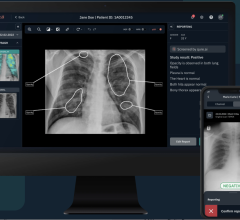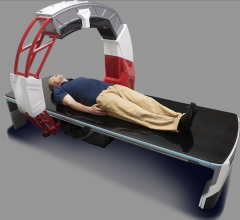
April 24, 2012 — Many have read in the news about using low-dose computed tomography (CT) screening to detect lung cancer. And many questions have surfaced: How effective is it? Who should get screened? The American Lung Association (ALA) released new interim guidelines to help physicians, patients and the public in their discussions about lung cancer screening.
Lung cancer is the leading cause of cancer death for both men and women in the United States. The five-year survival rate for lung cancer patients is only 15 percent. Recent research from the National Cancer Institute National Lung Cancer Screening Trial (NLST) found that low-dose CT shows promise as a method for detecting lung cancer in highest risk individuals who have not yet shown symptoms. This method has been shown to reduce deaths by 20 percent compared to use of chest X-rays.
Screening recommendations
Based on the NLST findings, the ALA recommends lung cancer screening with low-dose CT scans for people who meet certain criteria, which include the following: current or former smokers (aged 55 to 74 years) with a smoking history of at least 30 pack-years (that is, an average of one pack a day for 30 years) and with no history of lung cancer. The association also emphasizes that only CT scans are recommended and that chest X-rays should not be used for lung cancer screening.
ALA recognizes that while low-dose CT scans may save lives, screening for lung cancer should not be recommended for everyone as many known and unknown risks may be associated with both the screening and subsequent medical evaluation.
Not smoking is best prevention
“Never starting smoking and quitting smoking still remains the best way to prevent lung cancer. People having their homes tested for radon is also important, as radon exposure can increase the risk of lung cancer,” said Norman H. Edelman, M.D., chief medical officer of ALA.
The report also recommends that:
- Patients should be referred to facilities that have experience in conducting low-dose CT scans.
- These facilities should have multidisciplinary teams that can provide comprehensive follow-up.
- Hospitals and screening centers should establish ethical policies for advertising and promoting lung cancer CT screening services.
The report can be found at www.lung.org/finding-cures/research-news/new-screening-guidelines/lung-cancer-screening.pdf.
For more information: www.lung.org


 August 09, 2024
August 09, 2024 








